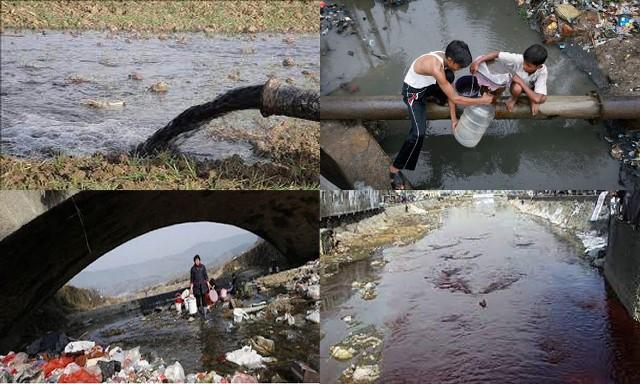KABUL (Pajhwok): The Ministry of Public Health and medical experts have expressed concern over the mixing of groundwater with human feces in most parts of Kabul.
DastagirNaziri, spokesman for the Ministry of Public Health, told Pajhwok Afghan News that although no new research had been conducted on Kabul’s groundwater in recent years; previous research showed 77 percent of the city’s groundwater contained human feces.
He stated that there was no regular sewage system in Kabul and most residents arbitrarily and unconventionally dug wells, which contaminated groundwater as a result of the absorption of human feces.
He noted that although groundwater pollution existed in all parts of Kabul; but according to him, the level of pollution was mostly seen in 11, 15, 13, 18 and six districts of Kabul.
Nazari called the pollution of groundwater in Kabul a matter of concern and said: Contaminated water causes microbial diseases such as diarrhea, pollen formation and pain in the stomach and intestines.
He added that the Ministry of Public Health was concerned about the issue because the population of Kabul was currently increasing and construction of arbitrary buildings had not stopped and there was no regular system for the sewerage system.
He called for urgent action by the relevant authorities and said measures should have been taken before and drilling of sewage wells in a non-standard way should have been prevented.
Dr. Mohammad NasirMalekzai, an internal medicine specialist, said that all diseases were directly or indirectly related to water pollution.
According to Dr. Malekzai, since water is a vital substance and essential for health; therefore, contaminated water can cause viral, bacterial and parasitic diseases such as malaria, leishmaniasis, diarrhea, stomach worms, etc.
According to this information, 25 children across the country die every day due to drinking polluted and unhealthy water.
He suggested that by launching awareness programs, people should be taught how to prevent groundwater contamination and how to treat contaminated water.
He said that according to a regular schedule, action should be taken in the area of standard wells for sewage.
Meanwhile, Dr. SilaniAhmadzai, an internal medicine specialist at LajevardAhmadzai Hospital expressed concern about groundwater contamination in Kabul.
Due to the pollution of groundwater and the combination of human feces with it, microbial diseases are more prevalent among the people and a number of children die every year due to these diseases, especially diarrhea, he added. He asked the relevant departments to pay attention in this regard.
Officials said they have plans to regulate water and manage the system of regular water supply networks in all areas of Kabul.
An environmental expert SalahuddinKabir said Kabul’s water was significantly polluted against WHO standard.
He added that although no recent research has been done on the level of groundwater pollution in Kabul; previous research showed about 80 percent of Kabul’s groundwater was contaminated with human feces.
He said if the matter was not addressed, a catastrophe will occur because drinking contaminated water, especially contaminated water with human feces, will spread rapidly among people.
Meanwhile, the citizens of Kabul are also concerned about the pollution of Kabul’s groundwater.
FarzanehNemat, a resident of Qala-e-Fathullah in Kabul said that according to research, groundwater was contaminated in most parts of Kabul and that it caused the spread of infectious diseases.
According to her, one of the main reasons for groundwater pollution is the digging of non-standard septic tanks or sewers.
She said most citizens of Kabul dig absorption sewage wells without being aware of the consequences of substandard construction, so as not to evacuate in the future. “Not only do they pollute the drinking water of their homes, but the whole area with their actions”.
According to her, the only way to prevent further groundwater pollution is to educate the public.
Noor Akbar Malekzadeh, a resident, said unfortunately the groundwater in Kabul is more polluted than in previous years; the population of Kabul has increased to six million and sewage pits have polluted groundwater.
He cited landfilling and overuse of agricultural fertilizers as other factors that have polluted groundwater in Kabul.
Bk
Abdul BasitKarokhel







GET IN TOUCH
NEWSLETTER
SUGGEST A STORY
PAJHWOK MOBILE APP